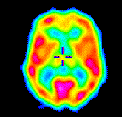 Final Thoughts
Final Thoughts 
 Final Thoughts
Final Thoughts 
Caffeine is a very potent, yet unrecognized drug.
Although there are beneficial side effects to caffeine intake, the negative
effects clearly indicate that one should limit their caffeine consumption.
Many major organ systems are adversely affected by high amounts of caffeine
consumption, including the heart, stomach, respiratory, and reproductive
organs. Age and diet are both factors in caffeine's effects on the
body. Young children and older people must be much more careful in
monitoring their caffeine intake and should limit themselves to less than
100 mg of caffeine per day. Those in between can take in slightly
more, but 200 mg of caffeine each day is about the maximum that the average
person can ingest without adverse side affects. Although caffeine
is a common substance found in many foods, beverages, and other supplements,
it is clearly a drug and can be extremely harmful to the human body.
Caffeine consumption should clearly be monitored and limited.
Home
- Chemistry - Physiological
Effect
Psychological
Effect - Conclusion
Other
links - Contact